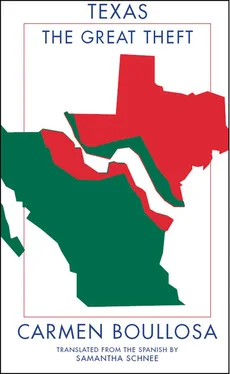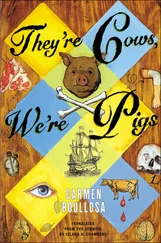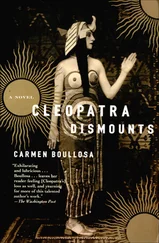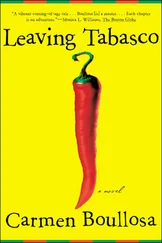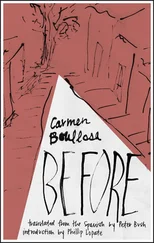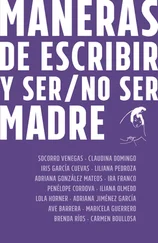There’s a pleasant breeze down at Bruneville’s docks, but up at the market and in the Town Hall — why lie? — it’s like being inside a Dutch oven. Short distances from the river make a big difference. Crossing it makes an even bigger difference; the Great Plains end here, bordered by the Río Bravo to the south. On the other side they also have people of all stripes — Indians, cowboys, bandits, Negros, Mexicans, gringos — as well as profitable mines and endless acres of land, but it’s different. The Río Bravo divides the world in two, perhaps even three or more. No fool would say that the gringos are all on one side and the Mexicans on the other, with separate territories for the Indians, the Negros, and even for sonsofbitches. None of these categories is absolute. In the Indian Territory there are many different tribes that don’t get along, they’ve just been shunted there by the gringos, just as there are also Negroes who speak different languages. Not all gringos are thieves, and not all Mexicans are kind-hearted; each of these groups have both good and bad.
Nevertheless, it’s an indisputable fact that the Río Bravo marks a border, because on its northern bank the Great Plains begin, and on its southern bank the world becomes itself again: the Earth, abounding with variety.
When he arrives at Bruneville’s dock, before taking his basket of bread off his head, Óscar announces loudly what Shears, the crappy carpenter (and even worse sheriff), has said to Nepomuceno. He’s overheard by Santiago the fisherman, who has just emptied his last basketful of crabs into Hector’s cart (it rained all night, which explains his unusually large catch). Santiago’s three children, Melón, Dolores, and Dimas, sit on the cart’s edge, their feet dangling just out of reach of the crabs. They are binding their claws and bunching them into bundles of a half-dozen each — they’ve spent the whole morning at the task. The vaqueros Tadeo and Mateo hear Óscar, too. Their livestock is already aboard the barge heading for New Orleans once it stops across the river to load the animals’ feed and some crates of ceramics from Puebla by way of Veracruz. They’re ready to feed their hunger and slake their thirst, to relieve their tiredness and boredom from the isolation of the pastures.
The cart’s driver, Mr. Wheel, doesn’t speak Spanish; he doesn’t understand a word Óscar says and neither does he care. No sooner has he gotten underway — passing through the neighborhood where the homes have roofs of reed or thatched palm, and the walls are made of mesquite or sticks, where they eat colorín flour or queso de tuna (which doesn’t deserve to be called cheese) — than Santiago’s kids start shouting, “Crabs! Crabs!”, working the phrase “dirty greaser” into their sales pitch, all the while deftly trussing up their remaining captives. They enter the part of town where the houses are made of brick, and they continue pitching their wares and spreading gossip.
Santiago passes the story to the other fishermen, who are detangling their nets for tomorrow’s early return to the water, leaving them laid out on the ground.
The fishermen carry the news along the riverbanks.
The vaqueros , Tadeo and Mateo, go straight to tell Mrs. Big, the innkeeper — it’s said she fell in love with Zachary Taylor in Florida and followed him to Texas, and that when he went to fight in Mexico she moved down to Bruneville, where she opened her waterfront hotel: cheap, but with pretentions to class, it has a dining room, bar, “casino,” and “café.” Word is that when some gossipmonger came to tell her that the Mexicans had killed her Zachary, she spat back, “You damn sonofabitch, there aren’t enough Mexicans in all Mexico to kill old man Taylor.” Driving the point home she added: “I’m gonna rip open your foot and give you a new mouth down there. You understand? Let’s see if you can learn to tell the truth with your new mouth, and stop spreading lies with the one you’ve had since birth.”
Mrs. Big tells the story about Nepomuceno and Shears to Lucrecia, the cook. Lucrecia tells the kitchen hand, Perdido. Perdido tells all the guests. Mrs. Big celebrates the news by offering a round on the house.
Why is she celebrating? Because she doesn’t like Mexicans? Or is it vengeance, settling unpaid debts? It’s a little of both, but the main reason is that Nepomuceno patronizes her rival, the Café Ronsard, her competition, her enemy, the focus of all her envy, the testament to all the mistakes she’s made, the burden she bears daily. She’s the best cardsharp in all Bruneville, no one can beat her at blackjack. Her view of the river is better; there’s a good breeze, and she’s got an old icaco tree, which gives great shade. So why doesn’t she have the best café? The Ronsard doesn’t have any of this, “just stinking drunks, lying around outside in the dirt.” Mrs. Big even plants tulips in the spring, and her roses bloom year-round (though when it’s burning up, their petals literally roast in the heat).
The two vaqueros spread Shears’ insult, embellishing it along the way. Tadeo steps into one of Mrs. Big’s rooms and passes the news on to two whores, the Flamenca sisters, with whom he’s about to begin a relationship that’s almost brotherly. Mateo tells both of his girlfriends. First, his publicly recognized one, Clara, the trapper’s daughter (she was waiting for him down by the dock), and then he tells his secret girlfriend, Perla, Cruz’s housekeeper, whom Mateo has sweet-talked into bed. She really does it for Mateo, she has a sweet ass and boy does she know how to use it, even better than Sandy can. But let’s be honest, she’s no looker.
A little later, Mrs. Big tells her fellow card players about the “Shears-Nepomuceno Affair,” while one of the Flamenca sisters muddles the story in the hotel bar. Tadeo remains in the room with her sister, it’s taking him a while to get it up.
Three people are playing cards with Mrs. Big: Jim Smiley, a compulsive gambler (he’s got a cardboard box with a toad next to him, for a while now he’s been trying to train it to jump farther than any other); Hector López (who has a round, childlike face, is an incurable womanizer, and owns the cart in which the trussed-up crabs are making the rounds of Bruneville); and one other guy who never opens his mouth, Leno (he’s desperate, and is only here to try to win some money).
On one side of the table, Tiburcio, the sour, wrinkled old widower, is watching them play; he’s always got some comment as bitter as his breath on the tip of his tongue.
Captain William Boyle, an Englishman, is the first of the dozen seamen who are about to set sail on the Margarita to understand the insult — most of them don’t speak a word of Spanish — and he translates it back into the sheriff’s mother-tongue, though his rendering alters it somewhat: “None of your business, you damned Mexican.”
The sailors celebrate the insult, “At last someone put the greasers in their place.” Rick and Chris embrace and begin to dance, singing “You damn Meexican! You damn Meeexican!” in a joking tone that carries across the water. Before the day is over, people on both banks of the Rio Grande, from Bruneville to Puerto Bagdad will have heard about what the gringo sheriff said, more or less accurately.
From Puerto Bagdad the news sails out into the Gulf, on boats headed north. After passing Point Isabel, the story runs up the coast, working its way past one river delta after another, and it’s carried upstream on the Nueces, the San Antonio, the Guadalupe, the Lavaca, the Colorado, the Brazos, the San Jacinto, and the Trinity.
And from a rotting dock the news travels with the mail boy to New Braunfels. The Germans are the only ones who give the mail carriers more work than the gringos.
Читать дальше
